Comprehensive Comparison of Gas vs Electric Water Heaters
When it comes to choosing between a gas or electric water heater, it's crucial to be well-informed about the key distinctions between the two. To help you make the right decision for your home in West Monroe, we'll delve into a comprehensive analysis of the advantages and disadvantages associated with each type. By comparing factors like energy efficiency and upfront expenses, you can make a well-informed choice that caters to your specific requirements when it comes to water heater replacement.

How do electric water heaters work?
Electric water heaters work by using electrical energy to heat water. They consist of a tank that holds the water and an electric heating element that warms the water inside the tank. The process begins when cold water enters the tank through a pipe connected to the water supply. Inside the tank, there is a thermostat that monitors the temperature of the water. If the temperature drops below the desired level, the thermostat sends a signal to the heating element to activate. When the heating element receives the signal, it starts heating up. It is usually made of a resistance wire that generates heat when an electric current passes through it. As the element heats up, it transfers the heat to the surrounding water in the tank. As the water heats up, it starts rising to the top of the tank due to convection. This movement causes colder water at the bottom of the tank to replace the heated water, creating a continuous cycle of heating. The thermostat continuously monitors the water temperature and signals the heating element to turn off when the desired temperature is reached. This helps maintain a consistent temperature and prevents the water from getting too hot. If the hot water is used and the tank starts to empty, cold water enters the tank to be heated again, starting the process from the beginning.

Benefits of electric water heaters
Electric water heaters offer a multitude of benefits that make them a popular choice for homeowners. Here are some key advantages of electric water heaters:
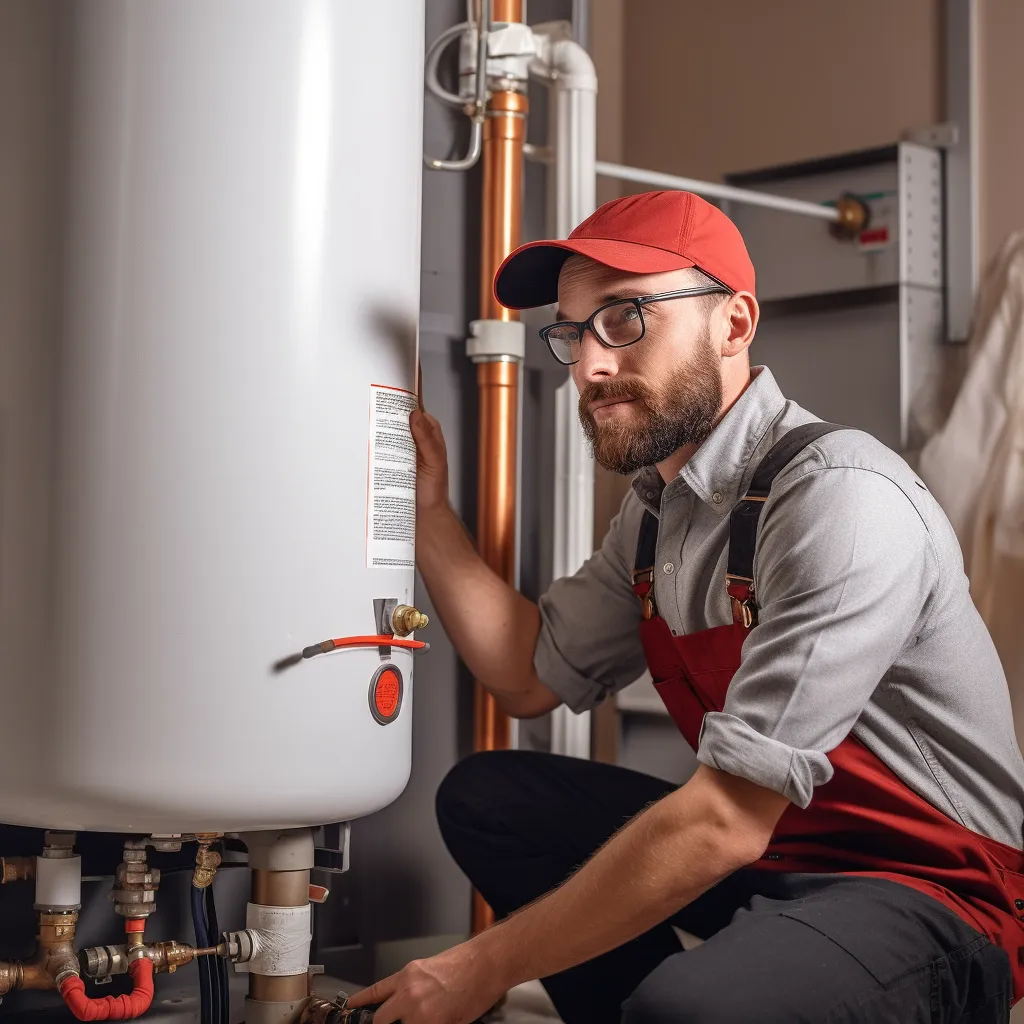
Energy Efficiency: Electric water heaters are known for their high energy efficiency. They convert almost all the electricity they consume into heat energy, resulting in lower energy bills for homeowners. Additionally, many electric water heaters come with programmable temperature settings, allowing homeowners to optimize energy usage according to their specific needs.
Ease of Installation: Electric water heaters are relatively easy to install compared to other types of water heaters. They do not require complicated venting systems or gas lines, making the replacement process simpler and more cost-effective. Moreover, electric water heaters are compact and can be easily installed in small spaces, making them convenient for homeowners with limited space availability.
Safety: Electric water heaters eliminate the risk of gas leaks or combustion-related accidents since they do not require a gas supply. This makes them a safer option for households, particularly for those with children or elderly residents. Additionally, electric water heaters often have built-in safety features, such as temperature and pressure relief valves, to prevent overheating or potential accidents.
Durability: Electric water heaters are known for their longevity. With proper maintenance, they can last for 10-15 years or even longer. They are less prone to corrosion and rusting, which is a common issue with gas-powered water heaters. Additionally, electric water heaters operate silently, making them ideal for noise-sensitive environments.
Environmental Friendliness: Electric water heaters are considered more environmentally friendly compared to gas-powered ones. They produce zero emissions during operation, reducing their carbon footprint. Additionally, electric water heaters can integrate well with renewable energy sources such as solar panels, further reducing the environmental impact.
Consistent Performance: Electric water heaters deliver consistent hot water temperatures throughout their lifespan. They provide reliable and instant hot water, ensuring a comfortable and convenient experience for homeowners. Furthermore, electric water heaters offer efficient heat recovery, allowing for quick reheating and minimizing downtime between showers or household tasks requiring hot water.
Downsides of electric water heaters
When it comes to electric water heaters, there are a few disadvantages to consider:
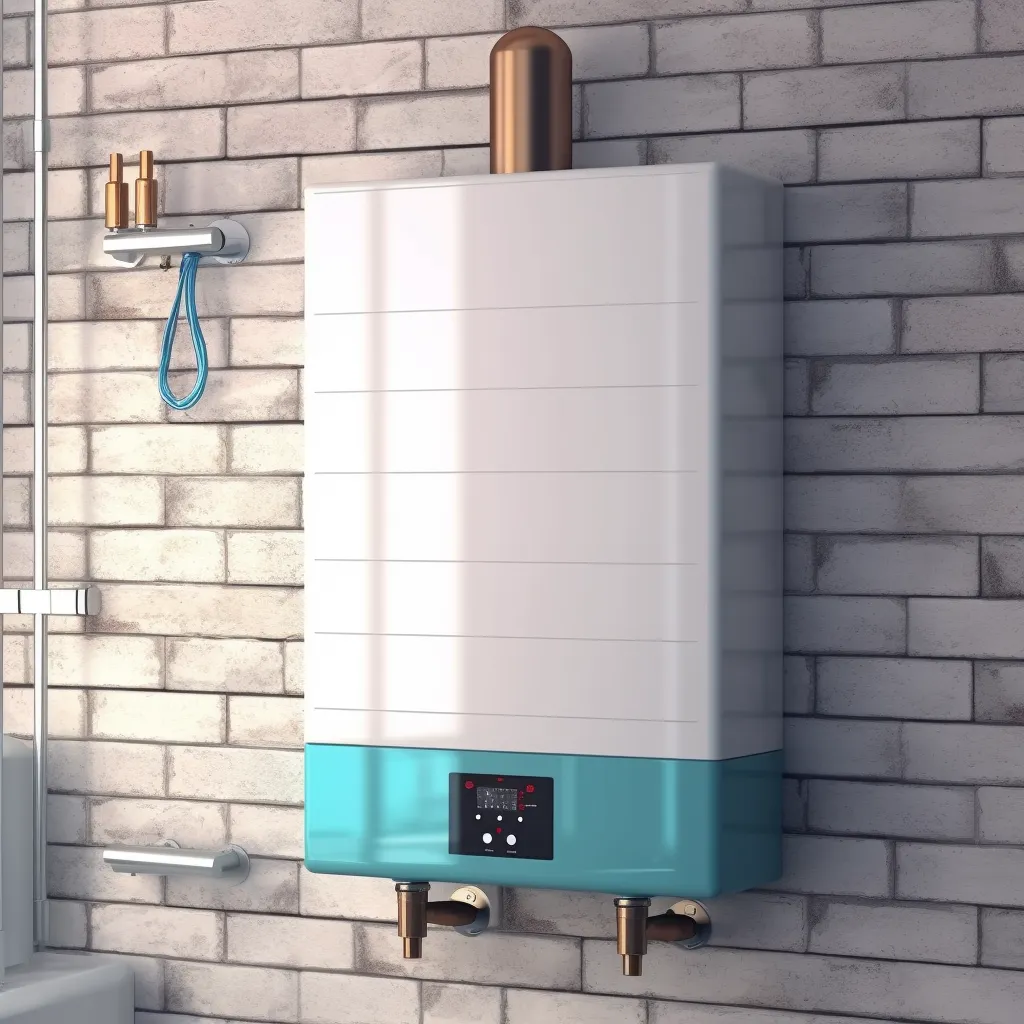
Higher Energy Costs: Electric water heaters tend to have higher energy costs compared to other types of water heaters. This is because electric heaters use electricity to heat the water, which can be more expensive than other fuel sources such as gas.
Slower Heat Recovery: Electric water heaters typically have slower heat recovery rates compared to their gas counterparts. This means that it may take longer for the water in the tank to reach the desired temperature after it has been used.
Limited Hot Water Supply: Electric water heaters have a limited hot water supply since the heated water is stored in a tank. Once the hot water in the tank is depleted, it takes time for the heater to heat more water. This can be inconvenient if you have a large household or have high hot water demands.
Safety Concerns: Electric water heaters can pose safety concerns if not properly maintained. Issues such as faulty wiring or electrical malfunctions can lead to potential electrical hazards or even fires. Regular maintenance and inspection are crucial to ensure the safety of your electric water heater.
Dependence on Electricity: Electric water heaters rely solely on electricity for operation. This can be problematic during power outages or in areas with unreliable electricity supply. A lack of electricity can result in no hot water until power is restored.
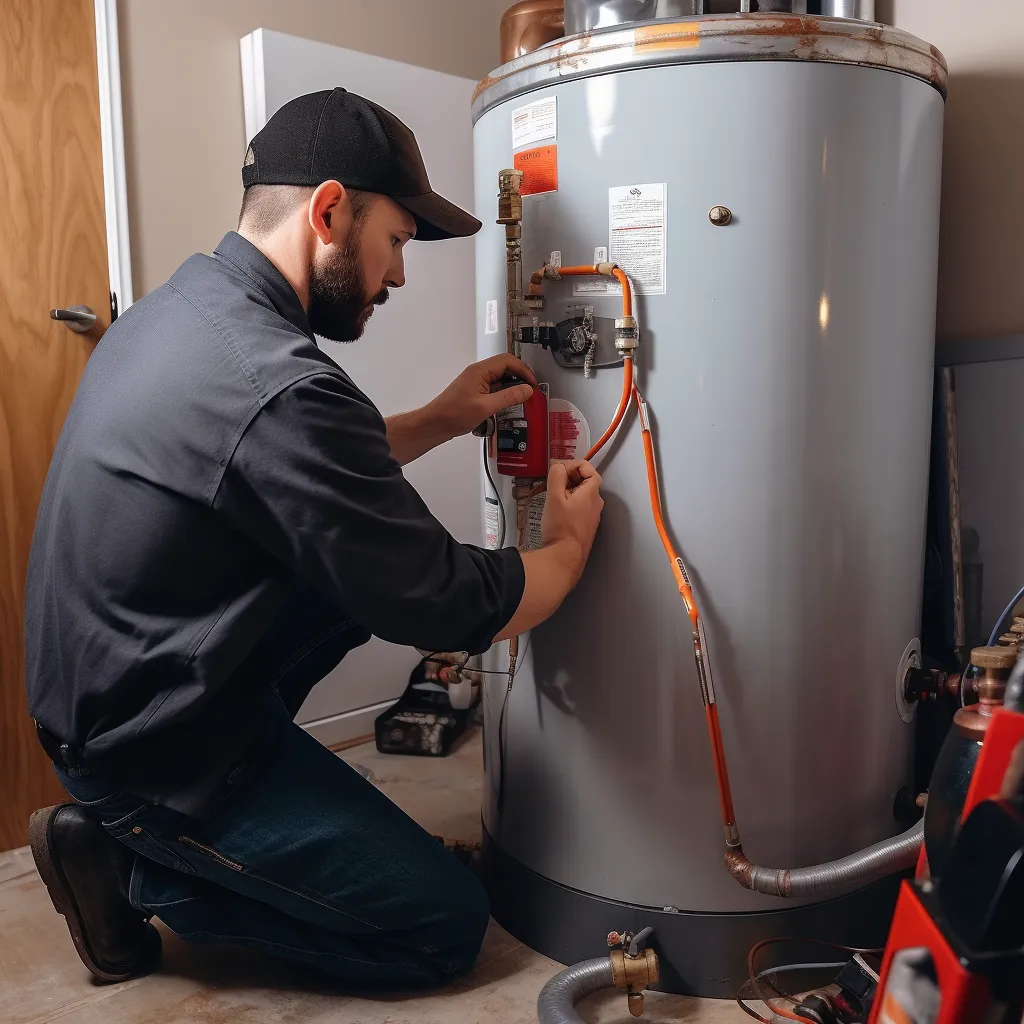
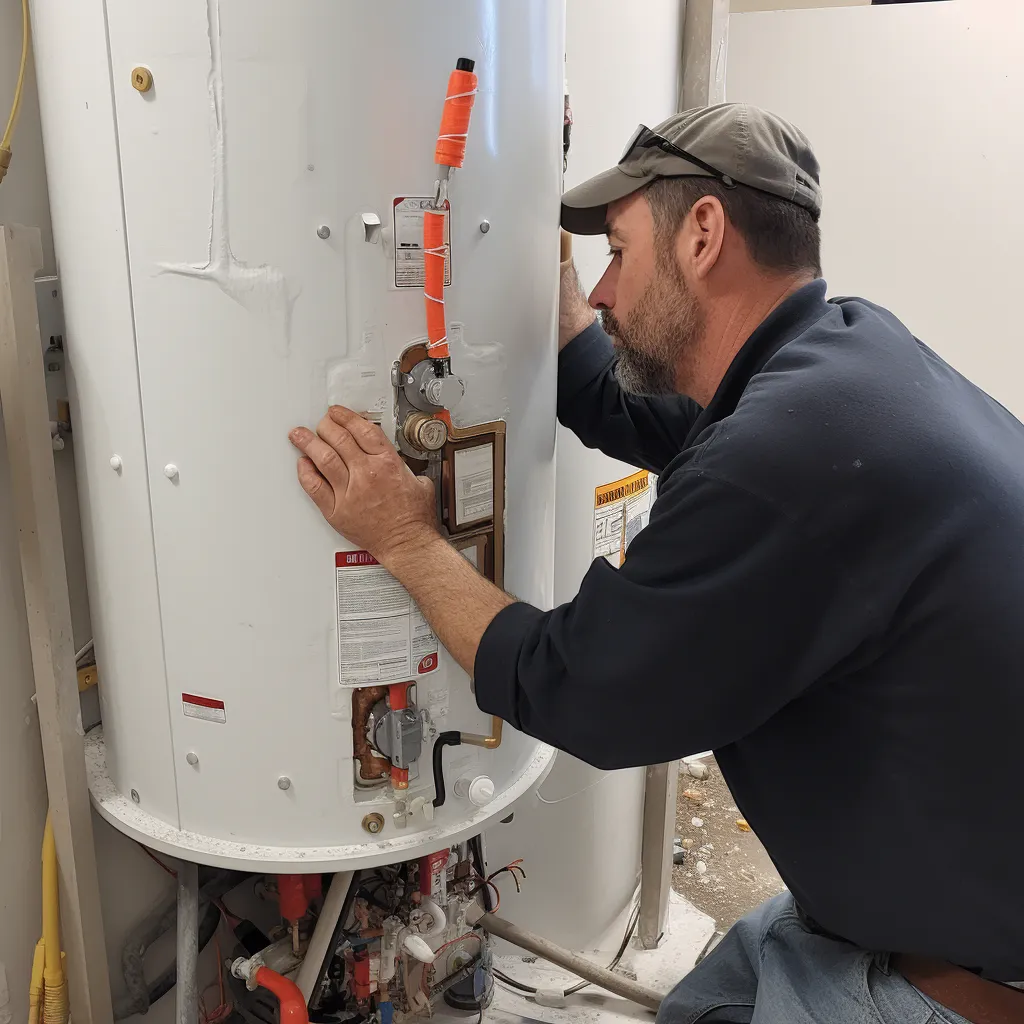
How do gas water heaters work?
Gas water heaters function by utilizing natural gas to heat and store water in a tank. The process begins when cold water enters the tank through a dedicated water supply line. Inside the tank, there is a thermostat that controls the heating process. When the thermostat senses that the water temperature has dropped below the desired setting, it signals the gas burner to ignite. The gas burner is located at the bottom of the tank and operates by igniting the natural gas. As the gas burns, it heats the metal tank, transferring the heat energy to the water. This process continues until the water reaches the temperature set on the thermostat. To prevent the build-up of dangerous gases, such as carbon monoxide, gas water heaters have a venting system that allows the harmful gases to exit the home safely. These vents typically run through a chimney or vent pipe leading to the outside. Once the water has reached the desired temperature, the gas burner shuts off. The heated water is then stored in the tank until it is needed for various household tasks, such as bathing or washing dishes. When hot water is used, cold water enters the tank to replace it, and the heating cycle starts again. Gas water heaters are known for their efficiency and quick recovery time. However, periodic maintenance, such as flushing the tank to remove sediment buildup, is essential to ensure optimal performance and longevity.
Advantages of gas water heaters
Gas water heaters have several advantages that make them a popular choice for homeowners in West Monroe when it comes to water heater replacement. Here are some key pros of gas water heaters:
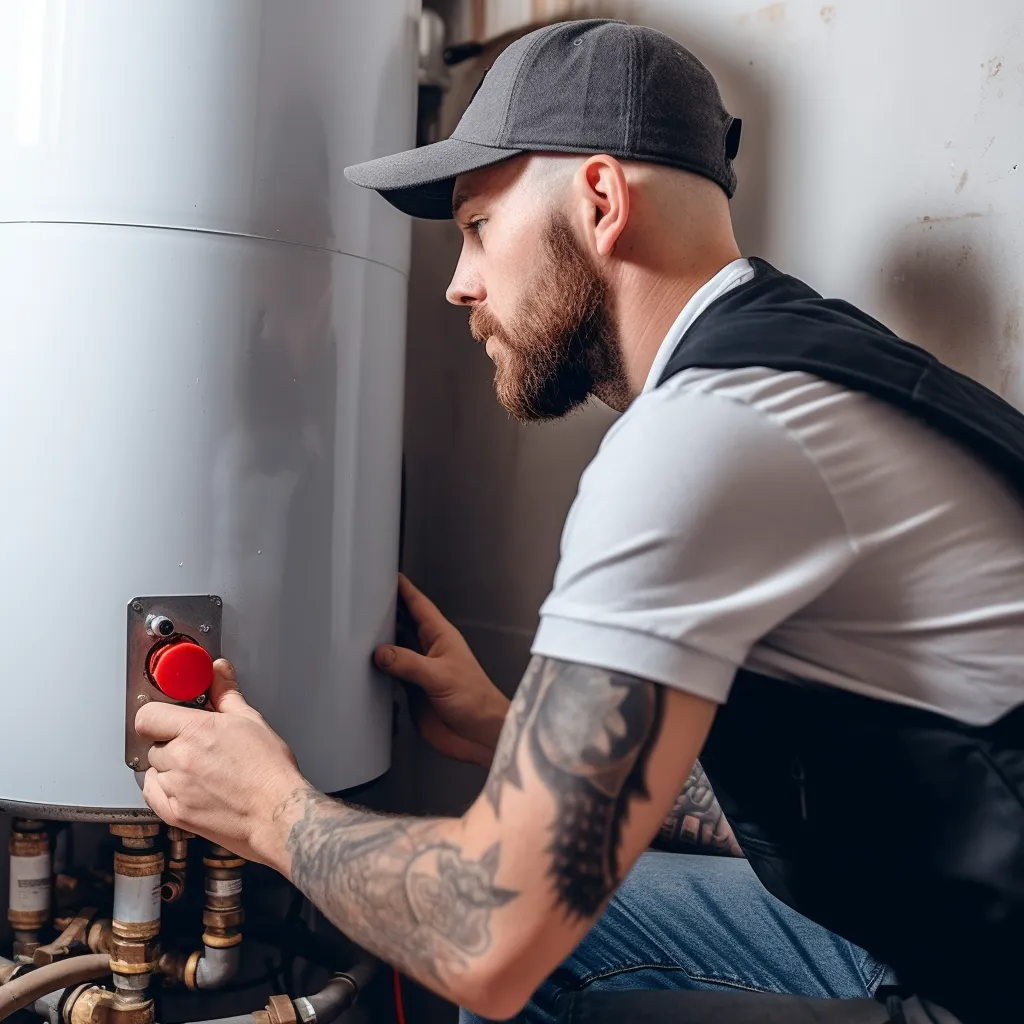
Efficient and Cost-effective: Gas water heaters are known for their energy efficiency, saving homeowners on their monthly utility bills. Compared to electric water heaters, gas water heaters heat water faster and provide a more consistent and ample supply of hot water while using less energy. This translates into cost savings in the long run.
Faster Heating: Gas water heaters have a quicker recovery time compared to electric counterparts. This means that after consuming a certain amount of hot water, gas water heaters replenish it more rapidly, ensuring a continuous supply of hot water for your household needs.
Reliable Performance: Gas water heaters are known for their reliability and durability. They have a long lifespan, typically lasting 10-15 years before requiring replacement. This means fewer maintenance issues and a lower chance of unexpected breakdowns.
Versatile Installation Options: Gas water heaters are flexible when it comes to installation options. They can be installed indoors or outdoors, depending on the available space and ventilation requirements. This flexibility gives homeowners more freedom in choosing the most suitable location for their water heater installation.
Operates during Power Outages: Gas water heaters do not depend on electricity for operation. This is particularly advantageous during power outages, as you can still have access to hot water for cooking, cleaning, and bathing.
Environmentally Friendly: Natural gas used in gas water heaters is a cleaner-burning fuel compared to other energy sources like coal or oil. In turn, this reduces the carbon footprint and environmental impact associated with heating water.
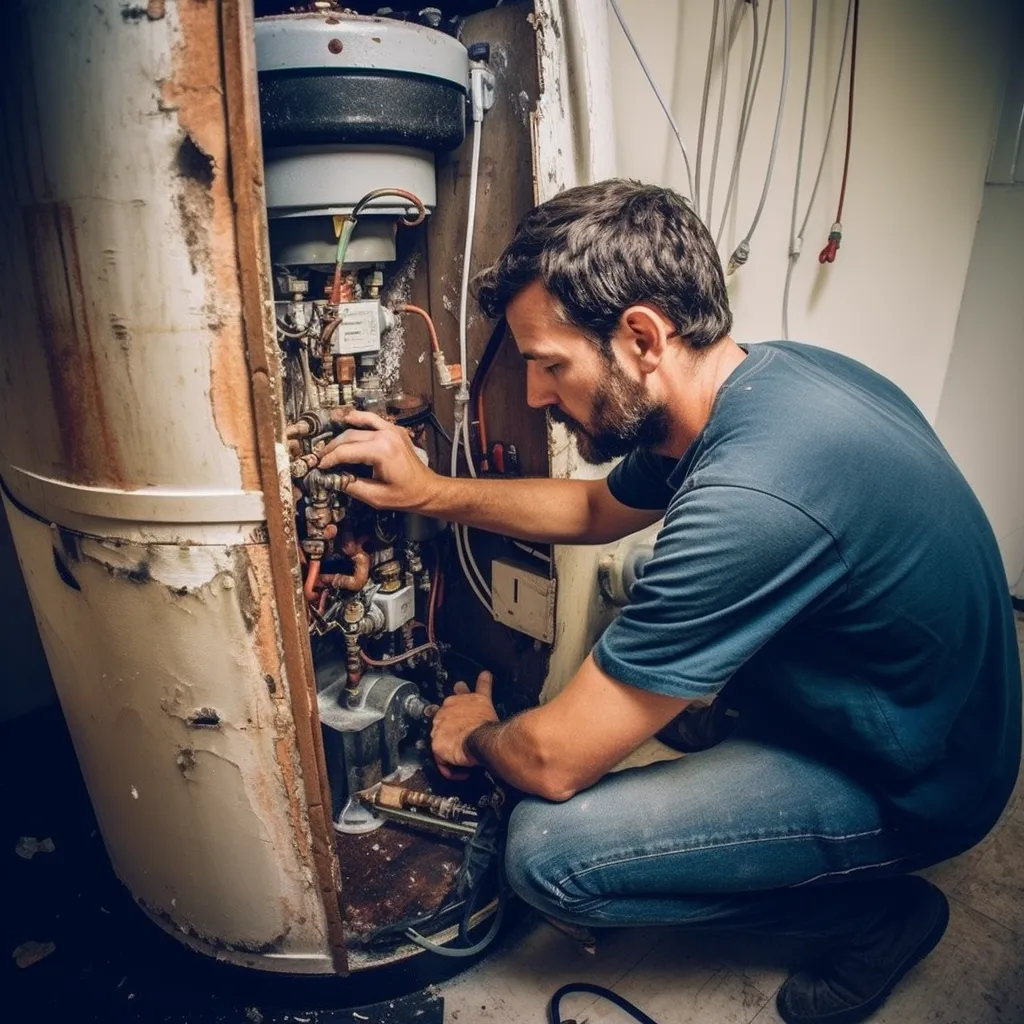
Disadvantages of gas water heaters
While gas water heaters offer certain advantages, it is important to consider the potential drawbacks before making a decision. Here are some cons of gas water heaters to keep in mind:
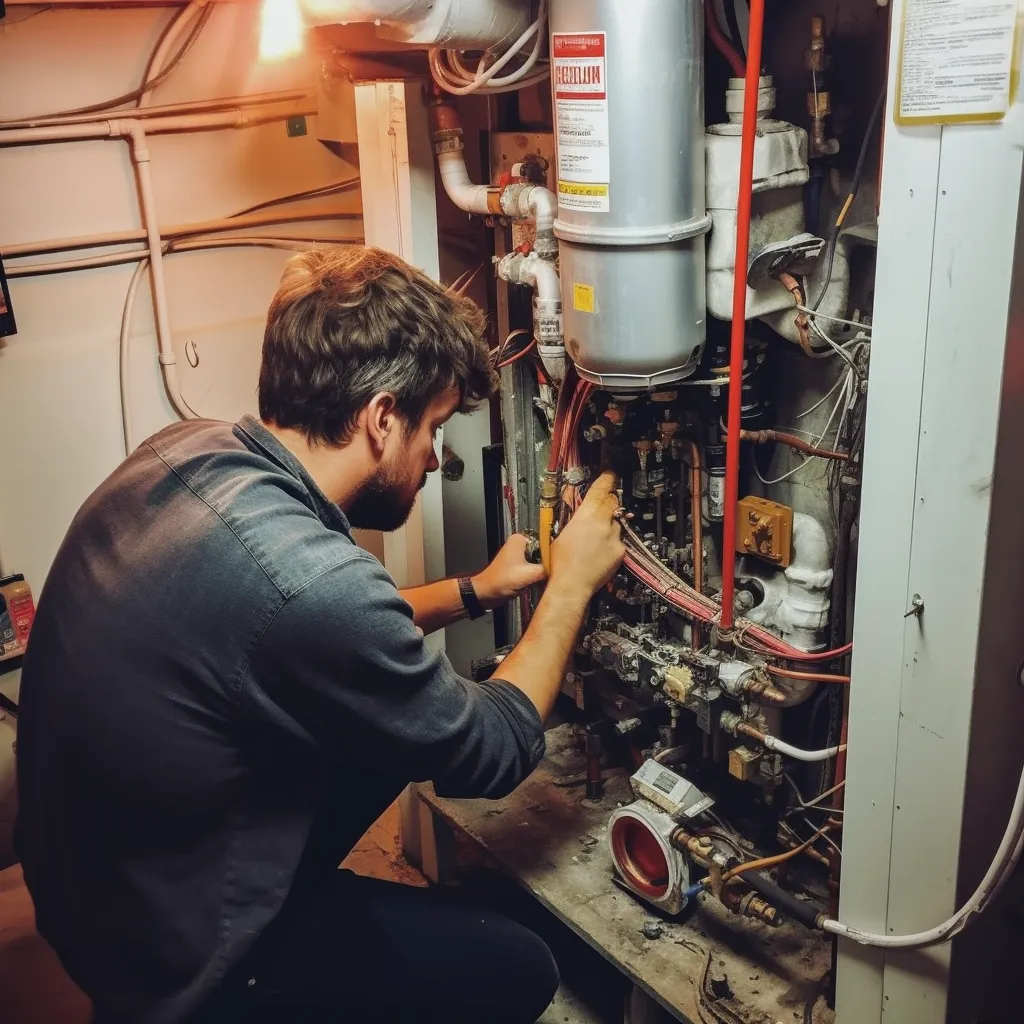
Higher upfront costs: Gas water heaters typically have a higher initial cost compared to electric water heaters. This is because they require a larger unit, venting systems, and additional safety measures. So, if you are on a tight budget, the upfront expense may be a concern.
Installation complexities: Gas water heaters require professional installation due to their combustion process and the need for proper venting. This means you will need to hire a licensed plumber or technician, which adds to the overall cost of getting a gas water heater installed.
Limited placement options: Gas water heaters require a source of natural gas or propane, which can limit their placement options within your home. They need to be located near a gas line, and in some cases, a dedicated ventilation system is necessary. This can restrict where the water heater can be installed, potentially limiting your overall space utilization.
Higher energy costs: While gas water heaters are generally energy efficient, the cost of natural gas or propane can fluctuate depending on the market. If gas prices increase, your energy bills will also rise. This ongoing expense can impact your budget over time.
Carbon monoxide risk: Gas water heaters generate combustion gases, including carbon monoxide (CO). Although modern units come with safety features, there is always a potential risk of a gas leak or carbon monoxide poisoning if the unit malfunctions or is not properly maintained. It is crucial to have regular maintenance and proper ventilation to minimize this risk.
Limited lifespan: Gas water heaters tend to have a shorter lifespan compared to electric models. On average, a gas water heater may last around 10-15 years, depending on usage and maintenance. This means you may need to consider a replacement sooner than with other types of water heaters.
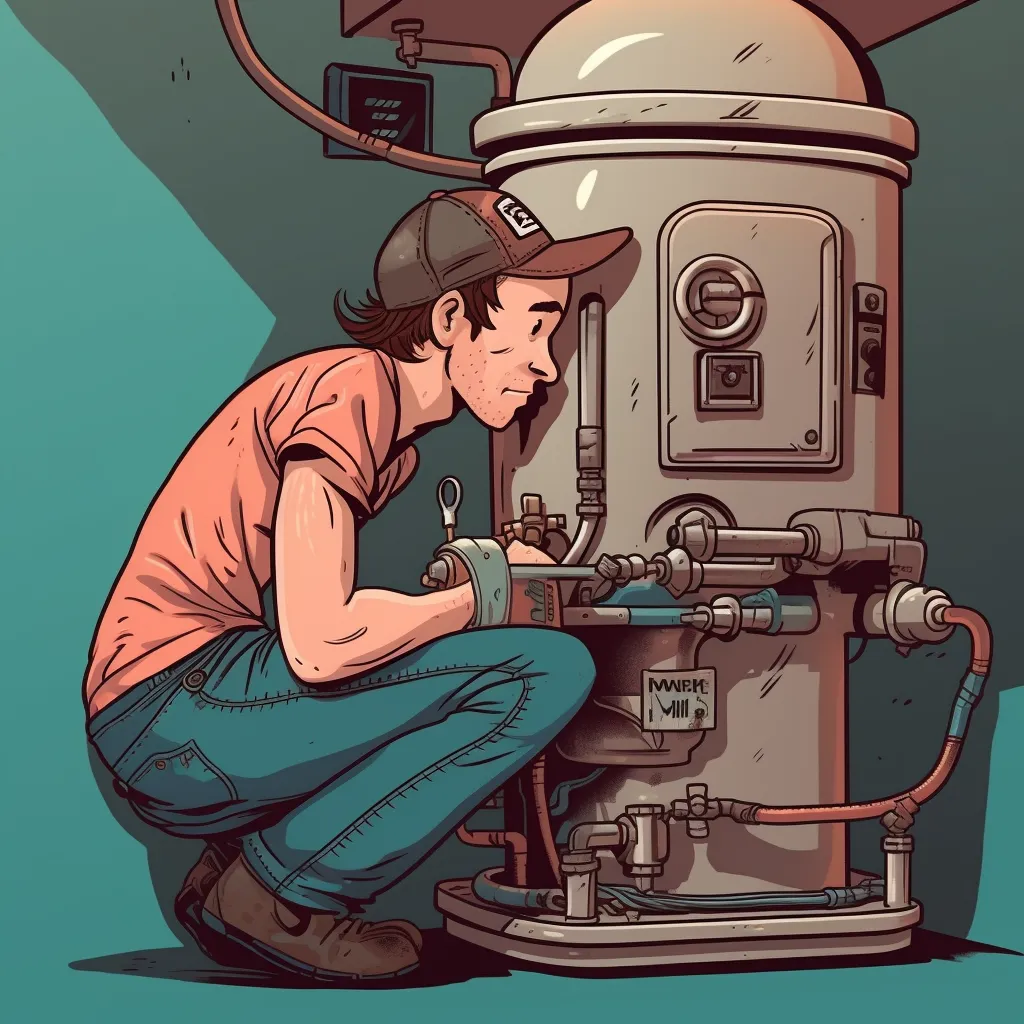
Are electric water heaters energy-efficient?
When it comes to energy efficiency in the realm of water heaters, electric models have made significant advancements. Electric water heaters are designed to convert a substantial portion of their energy input into usable hot water, resulting in increased efficiency and decreased waste. While gas-powered water heaters still hold their own in terms of overall performance, electric water heaters have come a long way. They have become a reliable option for homeowners seeking an energy-efficient and cost-effective solution for their hot water needs. One key advantage of electric water heaters is their ability to heat water precisely, reducing energy consumption. Traditional storage tank electric water heaters are equipped with insulation to minimize heat loss, ensuring the water remains hot for longer periods without the need for constant reheating. Furthermore, electric water heaters do not require vents or flues, making their installation more flexible and hassle-free. This makes them suitable for a wide range of settings, including apartments, condominiums, and homes without access to natural gas lines. Additionally, advances in technology have allowed for the development of electric heat pump water heaters, which are even more energy-efficient. These innovative units work by extracting heat from the surrounding air and transferring it to the water, resulting in significant energy savings.
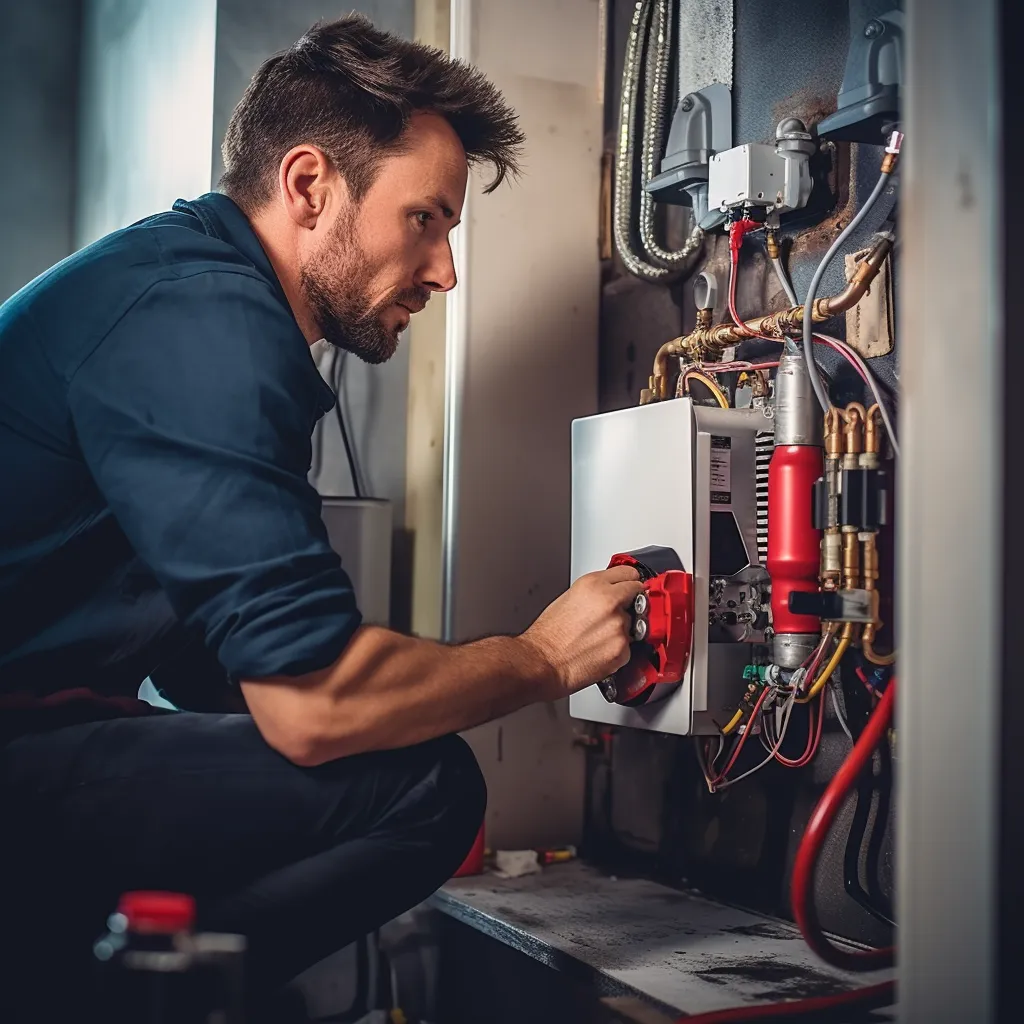
Are gas water heaters energy-efficient?
Gas water heaters can be energy-efficient compared to other types of water heaters, such as electric ones. This is because gas water heaters usually have a higher energy factor (EF), which measures their efficiency in converting natural gas into hot water. A high EF indicates that the water heater can effectively heat the water using less fuel. Gas water heaters also tend to have faster recovery rates, meaning they can heat water more quickly and provide a steady supply of hot water. However, the energy efficiency of a gas water heater also depends on factors like insulation and proper installation. It is important to consider the specific model and its features when determining the energy efficiency of a gas water heater.
Cost to buy and install electric water heaters
When it comes to electric water heaters, the cost can vary depending on several factors such as the size, brand, and installation requirements. On average, the price range for purchasing an electric water heater can be anywhere from $300 to $1,500. However, it's important to note that this is just the cost of the unit itself and does not include installation. Speaking of installation, it is highly recommended to hire a professional plumber to ensure a proper and safe installation of your electric water heater. The installation costs for electric water heaters typically range from $500 to $1,000. Again, this cost can be influenced by factors such as the complexity of the installation, any additional modifications needed, and the location where the water heater is being installed. In West Monroe, if you are looking for water heater replacement services, the cost may also include the removal and disposal of the old water heater. It is always best to consult with a licensed plumber or a trusted water heater replacement service in West Monroe for an accurate estimate specific to your needs.

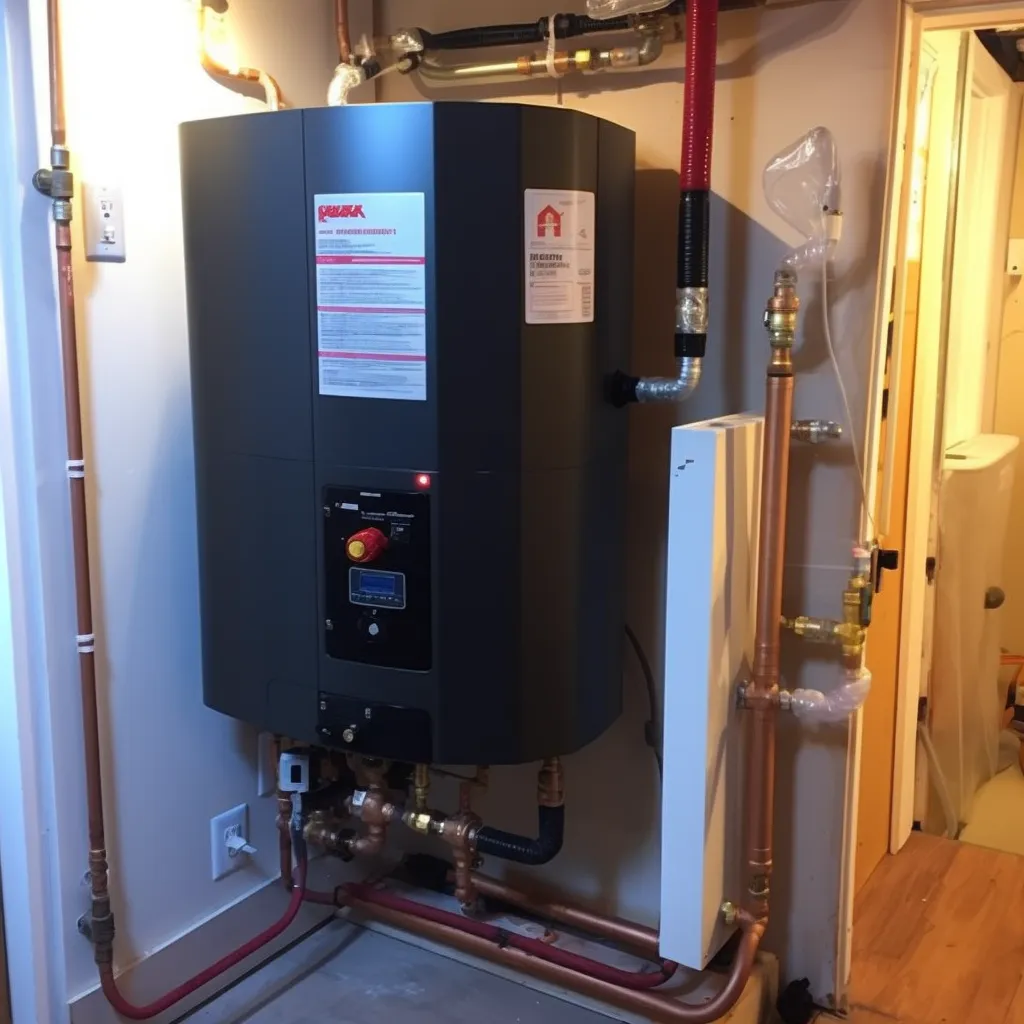
Cost to buy and install gas water heaters
When it comes to gas water heaters, the cost can vary depending on several factors. The price range for purchasing a gas water heater typically starts from around $500 and can go up to $1,500 or more, depending on the brand, capacity, and features. In addition to the cost of the water heater itself, you should also consider the installation expenses. The installation cost can be influenced by factors such as the complexity of the job, any necessary modifications to your existing plumbing system, local labor rates, and any additional accessories or materials required for installation. To get a more accurate estimate for gas water heater installation, it is recommended to contact professional plumbers or contractors in your area. They can assess your specific requirements and provide you with a detailed cost breakdown that includes both the water heater and the installation services. Keep in mind that while the initial cost of a gas water heater may seem higher compared to electric models, they tend to have lower operational costs in the long run. This is because natural gas is usually more affordable than electricity. Additionally, gas water heaters are known for their quick recovery rates, providing a constant supply of hot water even during high-demand periods.
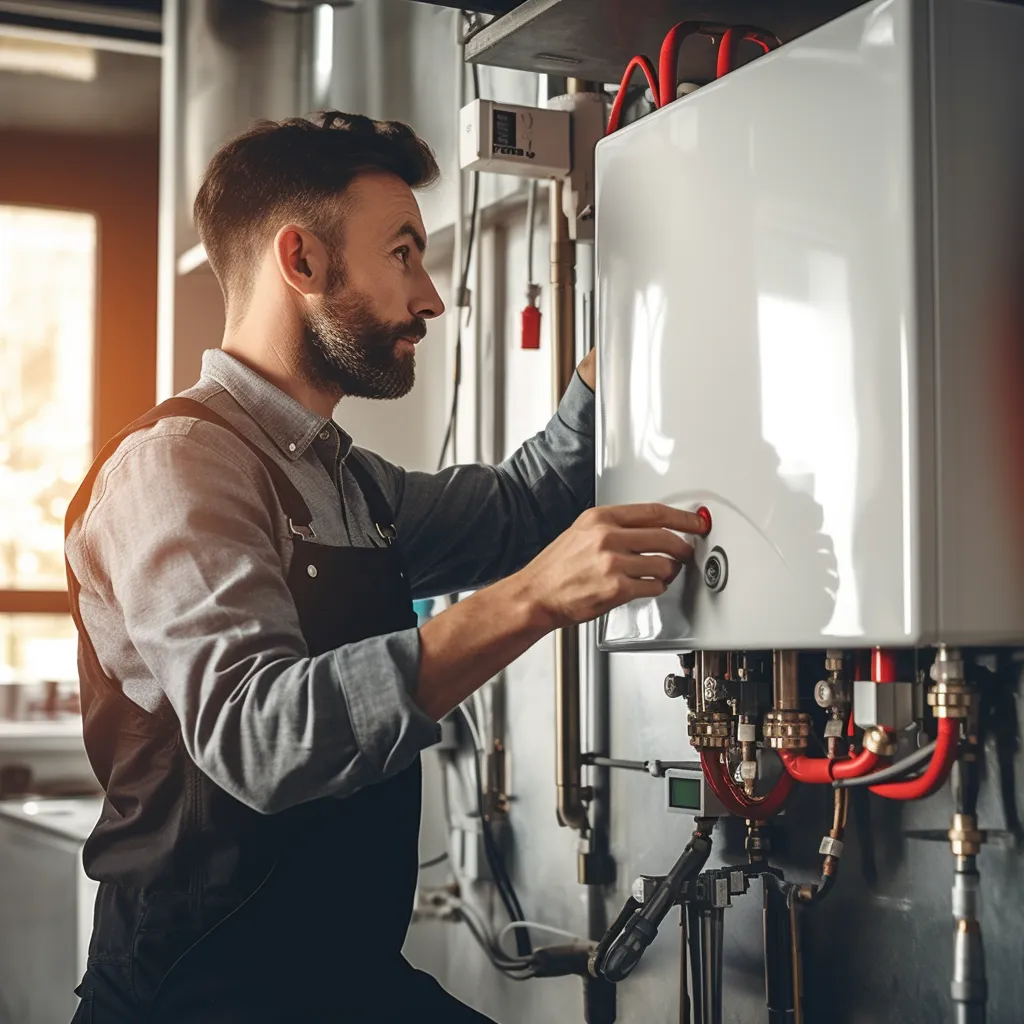
Maintenance needs of electric water heaters
Regular maintenance is crucial to ensure the optimal performance and longevity of electric water heaters. Ignoring these maintenance needs may result in inadequate heating, increased energy consumption, and even premature failure of the unit. By addressing the following maintenance tasks, homeowners can maximize the efficiency and reliability of their electric water heaters.
Checking the Pressure Relief Valve: The pressure relief valve is a safety feature that prevents excessive pressure buildup inside the tank. Homeowners should test this valve periodically by lifting the lever and allowing a small amount of hot water to discharge into a bucket. If the valve does not release properly or if it leaks continuously, it may need to be replaced.
Flushing the Tank: Over time, sediments and mineral deposits can accumulate inside the tank, reducing its efficiency and potentially causing damage. Flushing the tank annually helps remove these deposits, ensuring optimal heat transfer and preventing corrosion. To do this, homeowners should turn off the power supply, connect a hose to the drain valve, and let the tank drain completely. Once the tank is empty, turn on the water supply to flush out any remaining sediment.
Insulating the Pipes and Tank: Insulating the hot water pipes and the tank itself can significantly reduce heat loss and energy wastage. This is especially important for homeowners in colder climates where lower ambient temperatures can further accelerate heat loss. Pipe insulation sleeves and a blanket for the tank can be purchased at hardware stores and easily installed by homeowners.
Testing the Heating Elements: Electric water heaters rely on one or two heating elements to provide hot water. Over time, these elements may become defective or worn out, leading to inadequate heating. Homeowners can test the heating elements using a multimeter to ensure they are working correctly. If any element is faulty, it should be replaced promptly.
Inspecting the Anode Rod: The anode rod plays a vital role in preventing corrosion inside the tank by attracting and sacrificing itself to any corrosive elements present in the water. It is essential to inspect the anode rod annually and replace it if it shows signs of extensive corrosion or is less than 0.5 inches thick. This simple maintenance step can significantly extend the lifespan of the water heater.
By following these maintenance tasks, homeowners can ensure their electric water heaters run efficiently, minimize energy consumption, and ultimately save money on utility bills. For more complex maintenance tasks, such as water heater replacement, West Monroe residents should seek the help of professional plumbing services to ensure safe and proper installation.
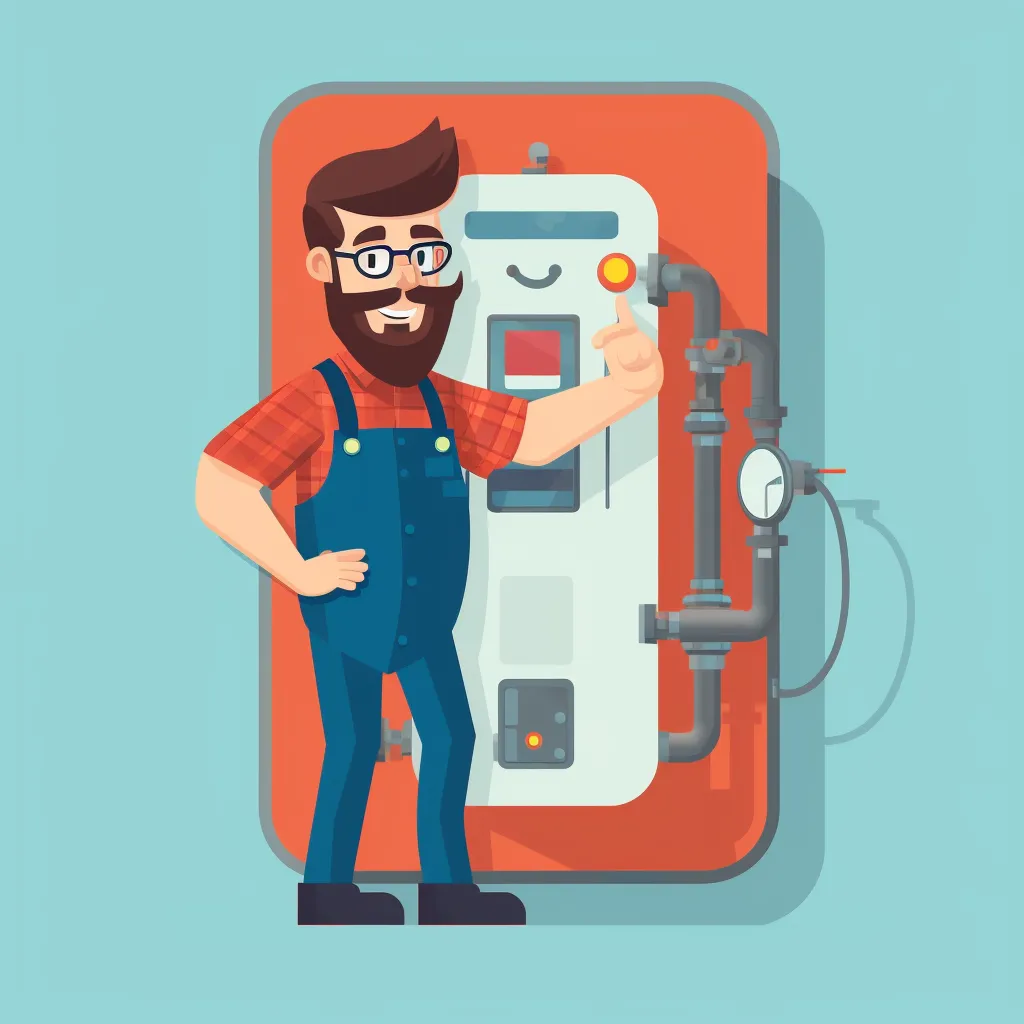
Maintenance needs of gas water heaters
Gas water heaters, like any other appliance, require regular maintenance to ensure optimal performance and longevity. Proper maintenance of gas water heaters is not only important for the efficiency of the unit, but also for the safety of your home and the occupants.
One of the key maintenance tasks for gas water heaters is flushing the tank regularly. Over time, sediment and mineral deposits can accumulate at the bottom of the tank, reducing its efficiency and potentially causing corrosion. Flushing the tank involves draining the water and rinsing out the sediment. It is recommended to do this at least once a year to maintain the efficiency of the water heater.
Another essential maintenance task is checking the pressure relief valve. The pressure relief valve is a safety feature that releases excessive pressure inside the tank to prevent it from bursting. It is crucial to ensure that this valve is in good working condition and not blocked or corroded. You can test the pressure relief valve by lifting the lever and allowing some water to flow through it.
Inspecting the burner and the burner assembly is also important. Dust, dirt, or debris can accumulate on the burner, affecting its performance. Cleaning the burner periodically ensures that it operates efficiently, reducing gas consumption and the risk of carbon monoxide production.
Inspecting the burner assembly for any signs of damage or leaks is vital for safety reasons.
Checking the venting system is another necessary step. Proper venting is crucial for the safe operation of a gas water heater. Obstructions or blockages in the vent pipes can lead to the build-up of dangerous gases such as carbon monoxide. Inspect the venting system regularly and remove any debris or blockages to maintain proper exhaust airflow.
It is essential to inspect the gas connections and ensure that there are no leaks. Gas leaks are a safety hazard and should be addressed immediately. If you detect any gas odor or suspect a leak, turn off the gas supply to the water heater and contact a professional plumber for assistance.
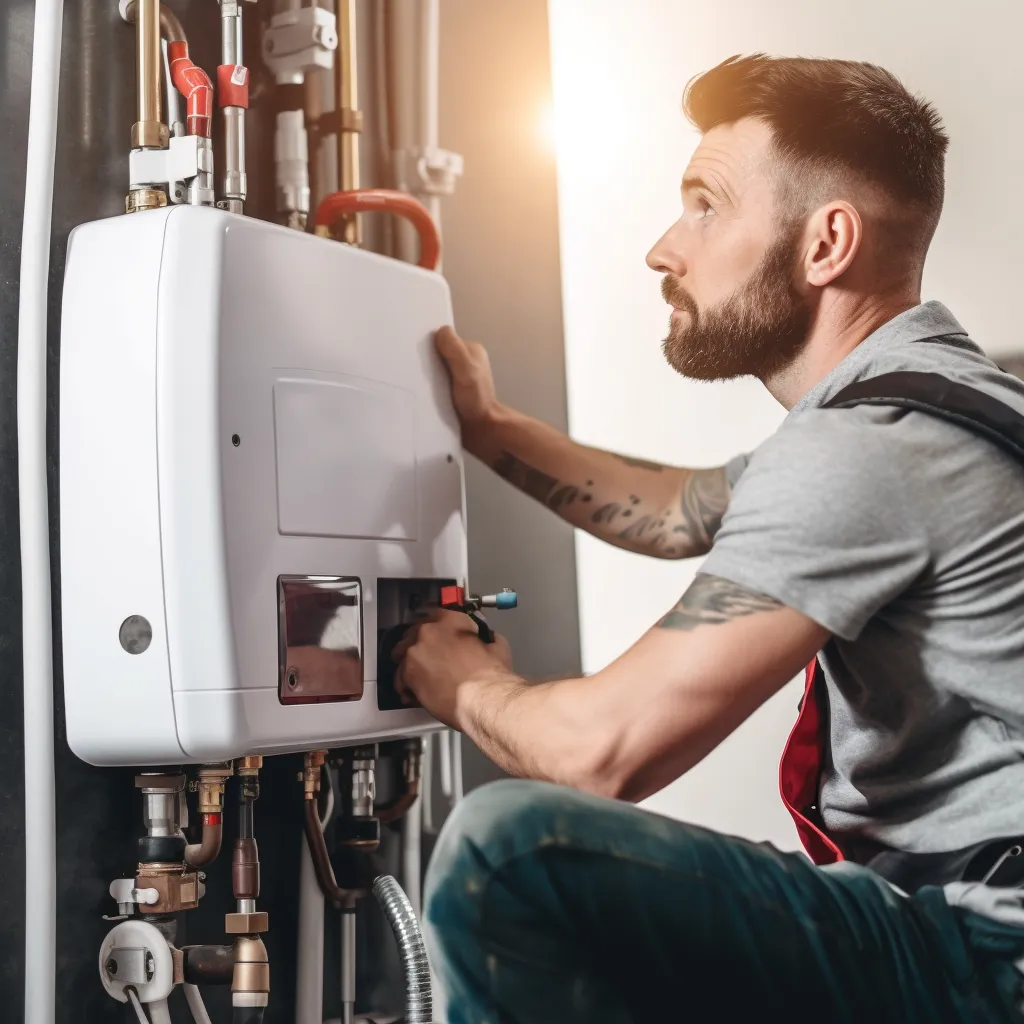
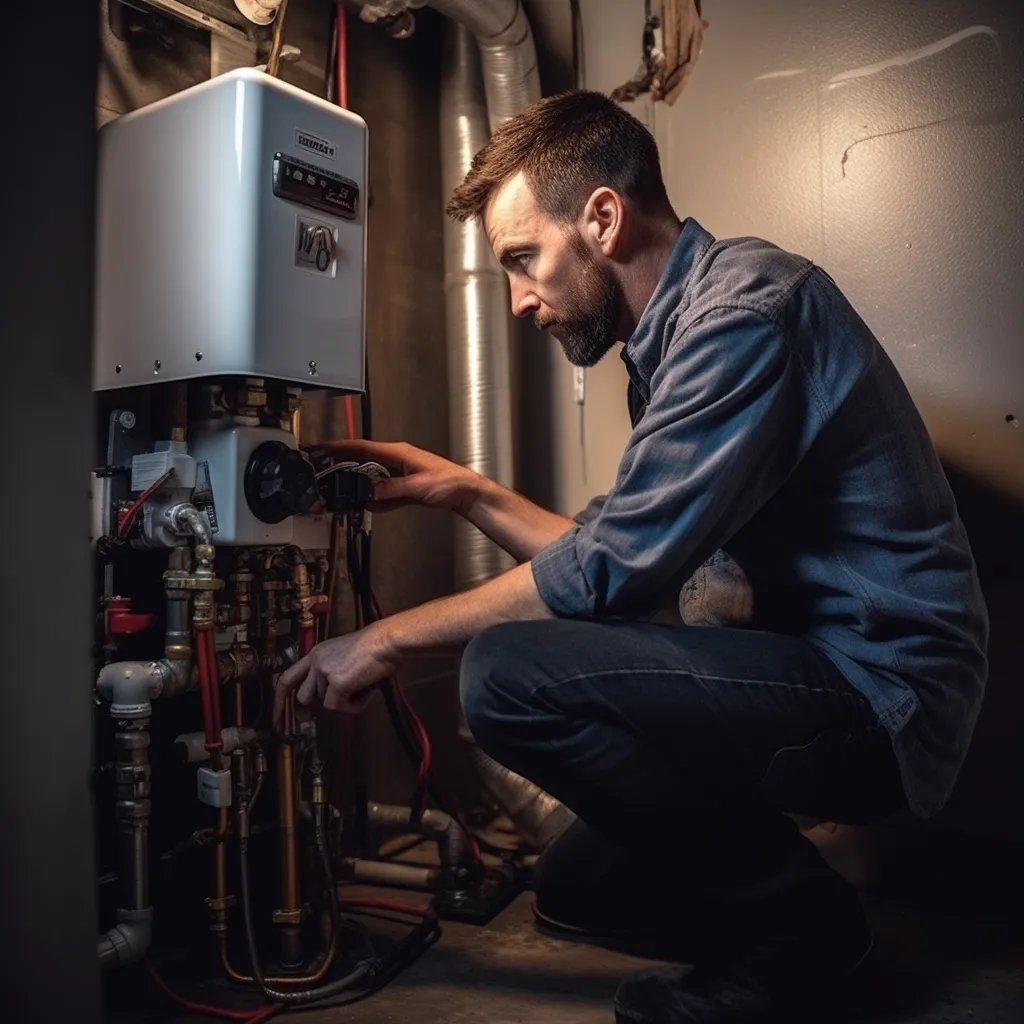
Safety considerations of electric water heaters
When it comes to electric water heaters, safety should be a top priority. Here are some important considerations to keep in mind:
Electrical Safety: Properly handling electricity is crucial during water heater replacement. Before starting any work, ensure that the electricity to the water heater is turned off at the breaker panel to avoid any accidents. It's wise to consult a qualified electrician or plumber to handle the electrical connections properly.
Ventilation Requirements: Electric water heaters don't emit harmful fumes like their gas counterparts, but they still need proper ventilation. Adequate ventilation helps prevent any accumulation of moisture, mold, or mildew in the area surrounding the water heater. Make sure the replacement unit is placed in a well-ventilated space, following the manufacturer's guidelines.
Clearing the Work Area: Before attempting a water heater replacement, clear the area around the unit to ensure a safe working environment. Remove any flammable materials or obstacles that could potentially hinder the installation process. This will not only prevent accidents but also make it easier to access the water heater.
Proper Lifting Techniques: Electric water heaters can be heavy and cumbersome to handle. It's crucial to practice proper lifting techniques to avoid strains or injuries. Consider having a team of professionals assist you with the replacement process to ensure a safe and efficient installation.
Compliance with Local Regulations: West Monroe likely has specific building codes and regulations surrounding water heater installations. It's essential to adhere to these codes to comply with local safety standards. Consult with a professional or local authorities to ensure your replacement meets all necessary requirements.
Regular Maintenance: Once the electric water heater replacement is complete, prioritize regular maintenance to prolong its lifespan and ensure ongoing safety. Performing routine checks, such as inspecting for leaks, checking the pressure relief valve, and ensuring proper temperature settings, is crucial to maintain the water heater's safety and efficiency.
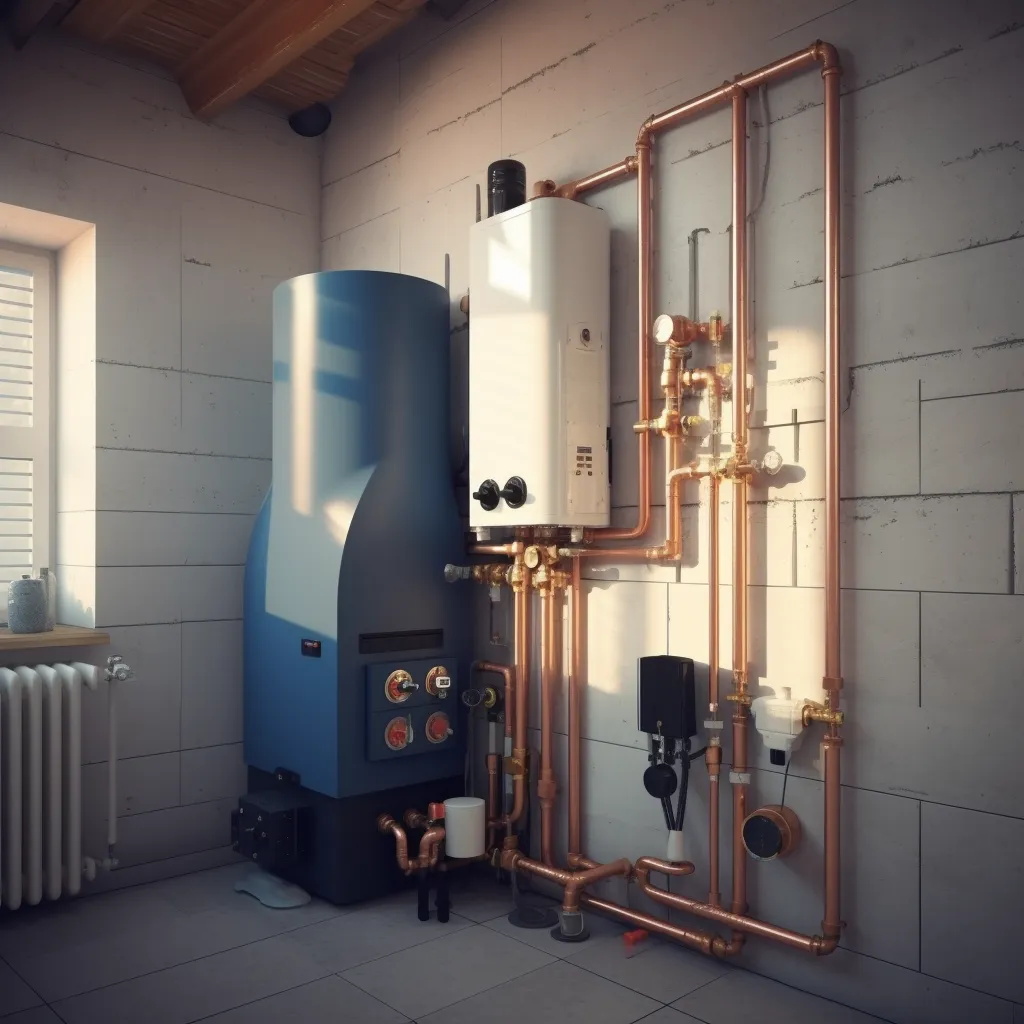
Safety considerations of gas water heaters
as water heaters are a popular choice for many homes due to their efficiency and cost-effectiveness. However, there are certain safety considerations that homeowners should be aware of, especially when it comes to water heater replacement in West Monroe.
One of the first safety considerations is proper installation. It is crucial to have a qualified professional handle the installation of a gas water heater. This ensures that all the necessary safety precautions are taken, such as proper venting and ensuring that the gas lines are correctly connected. Improper installation can lead to carbon monoxide leaks or even gas explosions, posing a significant risk to both the occupants of the home and the property itself.
Regular maintenance is another key safety consideration. Gas water heaters require periodic maintenance to ensure their safe and efficient operation. This includes inspecting and cleaning the burner assembly, checking for gas leaks, and flushing out sediment build-up. Neglecting maintenance can lead to issues such as poor combustion, decreased efficiency, and even potential safety hazards.
Ventilation is also a crucial safety consideration for gas water heaters. These appliances produce carbon monoxide gas as a byproduct of combustion, which can be deadly if not properly vented to the outside. It is essential to have adequate ventilation in the area where the water heater is installed, such as having a working vent pipe that leads outside.
Homeowners should be aware of the signs of a potential problem with their gas water heater. These can include a strong smell of gas, discolored or rusty water, strange noises coming from the unit, or a decrease in hot water supply. If any of these warning signs are present, it is crucial to shut off the gas supply to the water heater and contact a professional for inspection and repair.
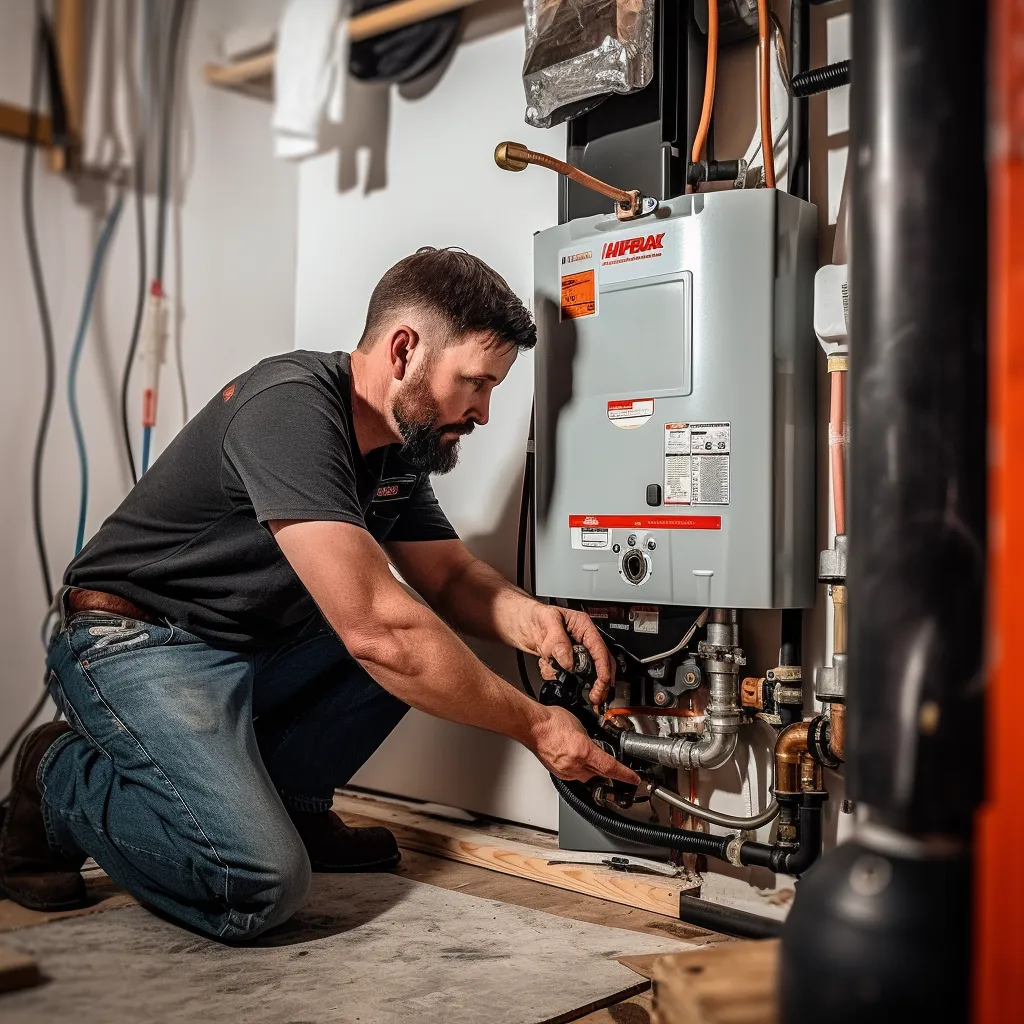
How to choose between electric vs gas water heater
When it comes to selecting a water heater for your home, one of the key decisions you will need to make is choosing between an electric or gas-powered unit. Both options have their own set of advantages and considerations to take into account, so it's important to evaluate your specific needs and priorities before making a decision.
Electric water heaters are powered by electricity and offer several benefits. They are generally more energy-efficient, with the ability to heat water quickly and efficiently. They also tend to have a longer lifespan compared to gas heaters and typically require less maintenance.
Electric water heaters are considered safer since there is no combustion involved. On the other hand, gas water heaters are powered by natural gas or propane.
One of the major advantages of gas heaters is their ability to provide a higher heating capacity, meaning you can get hot water faster than with an electric heater. They are also known for their lower operating costs, as natural gas is often cheaper than electricity. Gas heaters can still function even during a power outage, making them a reliable option.
When making your decision, you should consider factors such as energy efficiency, operating costs, availability of fuel sources, and the initial cost of installation. Additionally, it's crucial to assess your home's existing infrastructure and determine whether it can support a gas water heater or if an electric model would be more suitable.
If you're unsure about which option is best for you, it's always a good idea to consult with a professional plumber or water heater specialist. They can assess your specific needs, consider factors like usage patterns and available fuel sources, and provide expert advice tailored to your situation. Ultimately, the choice between electric and gas water heaters will depend on your individual preferences, budget, and requirements for water heater replacement in West Monroe.
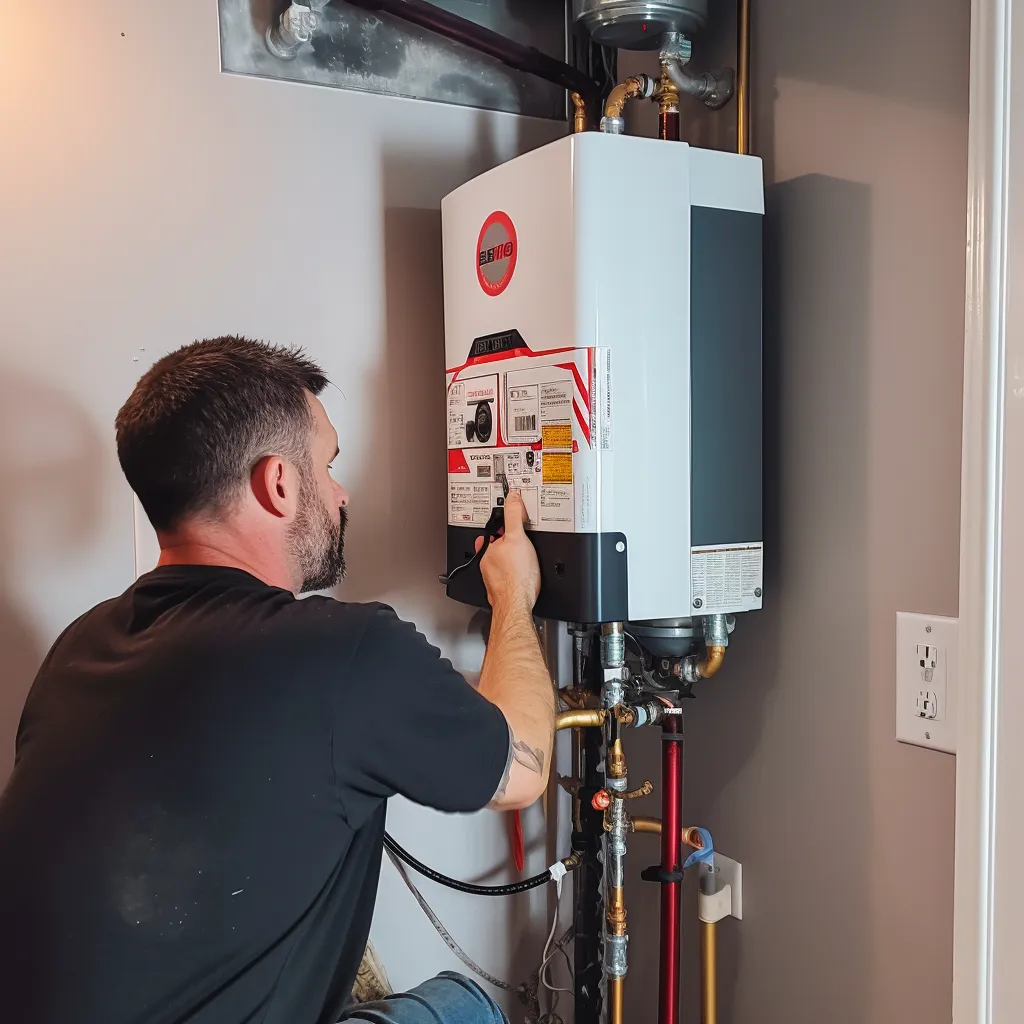
Why you should hire a licensed professional to install your water heater
Hiring a licensed professional is essential. While you may be tempted to tackle the job yourself, there are several reasons why it's best to leave it to the experts.
A licensed professional has the knowledge and experience necessary to install your water heater correctly. They understand the intricacies of the process and are familiar with the specific requirements and regulations in West Monroe. They will ensure that all the necessary permits are obtained and that the installation meets local building codes.
Hiring a licensed professional provides you with peace of mind knowing that your water heater is being installed safely. Water heater installation involves working with gas lines, electrical connections, and plumbing systems, which can be dangerous if not handled properly. A licensed professional has the expertise and training to handle these components safely and minimize the risk of accidents or damage to your property.
Another advantage of hiring a licensed professional is that they have the necessary tools and equipment to complete the job efficiently. They come prepared with the right tools and know which techniques to use to ensure a seamless installation. This can save you a significant amount of time and effort compared to attempting DIY installation, especially if you lack the appropriate tools or experience.
Hiring a licensed professional for water heater replacement offers you protection against potential liabilities. If an accident were to occur during the installation process, such as a fire or a leak, a licensed professional typically carries liability insurance. This coverage can help protect you from any financial repercussions or legal issues that may arise.
Using a licensed professional for your water heater replacement can also save you money in the long run. A proper installation ensures that your water heater operates efficiently, reducing energy waste and potentially lowering your utility bills. Additionally, a professional installation minimizes the risk of future repairs or replacements due to improper installation or damage caused by DIY installation attempts.
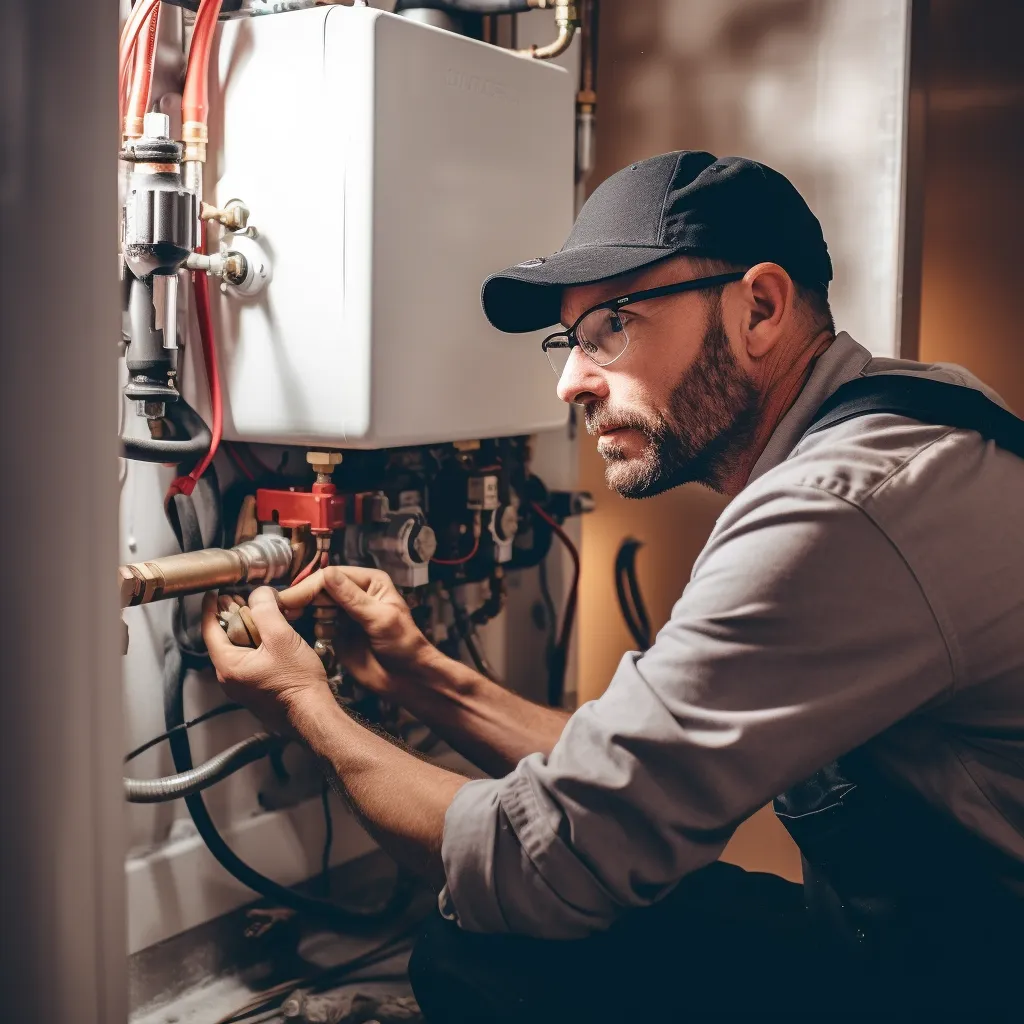
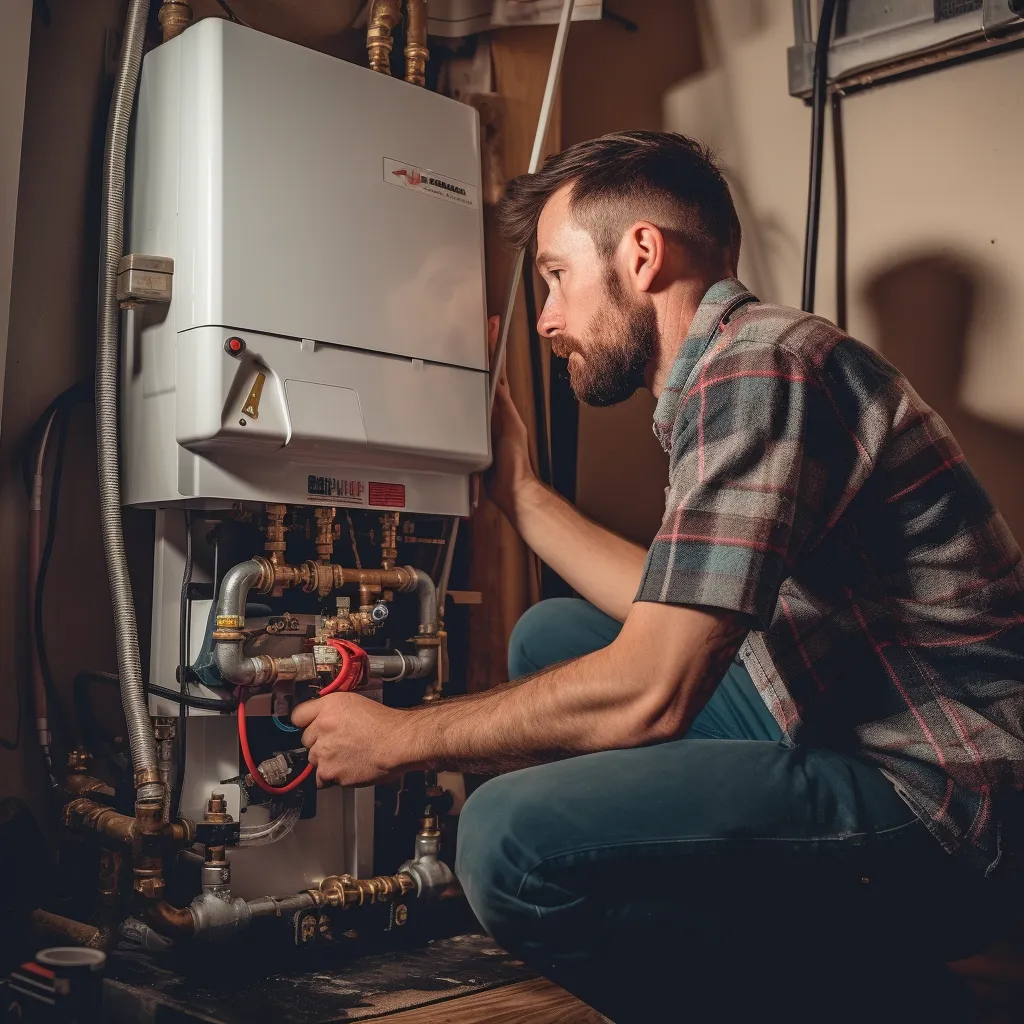
Explore all options
If you are in the market for a new water heater, conducting in-depth research is crucial. It is essential to thoroughly explore the options available to you and understand the pros and cons of electric and gas models. Safety considerations and installation requirements are also important factors to consider when choosing a water heater. By carefully considering all these aspects, you can find the perfect water heater that suits your specific needs. However, it is vital to highlight the importance of entrusting the installation process to a licensed professional. Hiring a professional will ensure that your water heater is installed correctly and operates safely and efficiently. So, make sure to prioritize the expertise of professionals in water heater replacement in West Monroe.
Contact Us
GET IN FULL TOUCH
PHONE: (318) 933-7010
EMAIL:
shane@waterheaterwestmonroe.com
Shane Wright Plumbing
West Monroe, LA 71292
